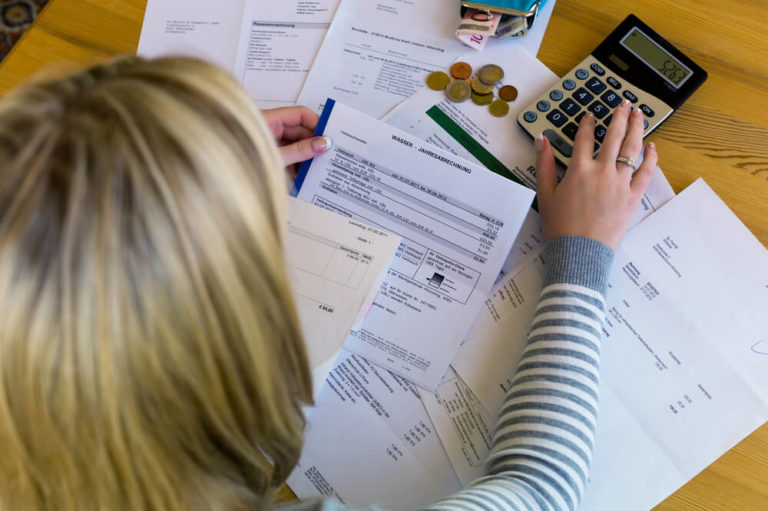
If you’re considering entering into a trust deed in Scotland, it’s essential to understand the terms and conditions of this legally binding agreement between you and your creditors. One question you might have is whether you can pay off a trust deed early.
When setting up a trust deed, you agree to make regular payments to your trustee, who then distributes the funds to your creditors over a predetermined period, typically four years.
While the primary goal of a trust deed is to ease your debt burden, circumstances may change, and you may find yourself in a position to repay your debts faster than initially planned. Fortunately, paying off a trust deed early is possible.
If you come into a financial windfall, receive a pay increase, or significantly reduce your living costs, you can inform your trustee about your new financial situation. Your trustee can then work with you to adjust your monthly repayments or agree on a lump sum payment that discharges your debts.
It’s essential to keep in mind that paying off a trust deed early can save you money on interest payments and end the arrangement sooner, providing you with a fresh financial start. However, remember to consult with your trustee, as they hold the legal responsibility to work in the best interest of both you and your creditors.
By addressing your changed financial situation and planning an early repayment or adjusted terms, you can take control of your debt and work towards a debt-free future.
How Trust Deeds Work
Who Is Involved in a Trust Deed
A trust deed is a legally binding agreement between you (the debtor) and your creditors to manage the repayment of your unsecured debts, like credit cards, car finance, and student loans. A key player in this arrangement is the trustee, a licensed insolvency practitioner, who represents you and handles the negotiations with your creditors.
To make sure your trust deed is legally recognised, it must be registered in the Register of Insolvencies. Your trustee will take care of this process for you, and your creditors will be notified about your trust deed.
Terms of a Trust Deed
A trust deed typically involves the following terms:
- Trust: Your trustee will establish a trust into which your assets, such as your home or vehicle, will be transferred. Although your wealth will be placed in the trust, you can still use your car and live in your home as long as you fulfil your payment obligations.
- Trustee: Your trustee will assess your financial situation, including your employment status and secured debt, and determine your monthly repayment based on your income, expenses, and debt levels. They will also negotiate with your creditors and distribute your monthly payments accordingly.
- Debts: Trust deeds cover unsecured debts like credit card debt, personal loans, and student loans. However, they don’t cover secured debts like mortgages or car loans, nor do they include certain fines or penalties.
- Home Equity: If you own a property, your trustee may require you to release some of the equity in your home to help repay your debts. This can be done in various ways, such as remortgaging or obtaining a secured loan on your property.
- Trust Deed Term: A trust deed usually lasts for a pre-agreed period, often around four years. During this time, you’ll make regular monthly payments toward your debts. Once your trust deed term is complete and all your obligations are met, your remaining unsecured debt will be written off.
Keep in mind a trust deed is a legally binding arrangement that can help you manage your unsecured debts. By involving a trustee and registering your agreement in the Register of Insolvencies, you are taking a significant step toward a more stable financial future.
Impacts of Paying a Trust Deed Early
Benefits of Early Payoff
By paying off your trust deed early, you may experience several positive effects. Firstly, you can reduce the overall costs of the trust deed, such as interest and administration fees.
This is achieved by shortening the duration of your agreement, which leads to fewer repayments. Additionally, an early payoff may help in improving your credit rating, as your credit file will no longer show any unmanageable debt.
A trust deed with shorter terms can relieve stress and creditor pressure. By fulfilling your agreed payments sooner, you can experience a sense of financial stability and a fresh start. This could also contribute positively to your employment situation, as some employers may take public records, such as trust deeds, into consideration.
Lastly, paying off your trust deed early can give you an opportunity to review your budget and seek other debt solutions. With unsecured debts over and done with, you may find better budgeting or alternative debt relief options that better suit your current financial situation.
Potential Disadvantages
However, there can be some drawbacks to paying off your trust deed early. For instance, you may face expenses in the form of additional costs. These may include tax liabilities or penalties from creditors in full. It’s crucial to consult with your insolvency practitioner or a financial advisor before making a decision.
Also, an early payoff might not always be possible due to your personal financial situation. If you don’t have access to a lump sum payment, for example, from a redundancy payout or an unexpected source of income, paying your trust deed off early may not be feasible.
You should also consider the impact on your credit file and credit score. It’s important to note that a trust deed remains on your credit report for a fixed duration, usually six years, regardless of when it is settled.
If you have other unmanageable debts, such as a mortgage, early payoff may not help improve your credit rating as significantly as you might expect.
Before moving forward with an early payoff, it’s essential to weigh the benefits and potential disadvantages. Speak to an expert team or insolvency practitioner to evaluate your options and consider your personal circumstances.
Alternatives to Early Payoff
If you’re considering paying off a trust deed early, it’s essential to explore the various alternatives to early payoff. There are several approaches to manage your debts effectively and avoid potential pitfalls.
Debt Management Plans
A Debt Management Plan (DMP) is an informal agreement between you and your creditors to repay your unsecured debts, such as credit cards, over a specified period. The main benefits of a DMP include:
- Affordable payments: Your monthly repayments are based on your income and agreed with your creditors.
- Freeze interest and charges: Many creditors will agree to freeze interest and charges on your debts to help you repay them faster.
- Flexible arrangements: If your circumstances change, you may be able to revise your monthly repayments.
However, a DMP may not be suitable for everyone, as it can take longer to clear your debts compared to other options.
Bankruptcy
Bankruptcy is a more severe debt solution that involves a court declaring you as unable to repay your debts, resulting in some or all of your assets being sold to repay your creditors. The main features of bankruptcy include:
- Relief from debt: Most unsecured debts will be written off upon your discharge from bankruptcy, usually after 12 months.
- Asset sales: Some of your assets may be sold to repay your creditors, but essential items such as household goods and tools for your trade will be exempt.
- Restrictions: Bankruptcy comes with restrictions, such as not being able to act as a company director, and it will negatively affect your credit rating for several years.
Keep in mind that bankruptcy can be a drastic solution and should only be used as a last resort.
Before choosing any debt solution, it’s crucial to seek independent advice from a financial advisor or a licensed insolvency practitioner. They can help you determine which option is best suited to your unique situation while minimising potential risks.





